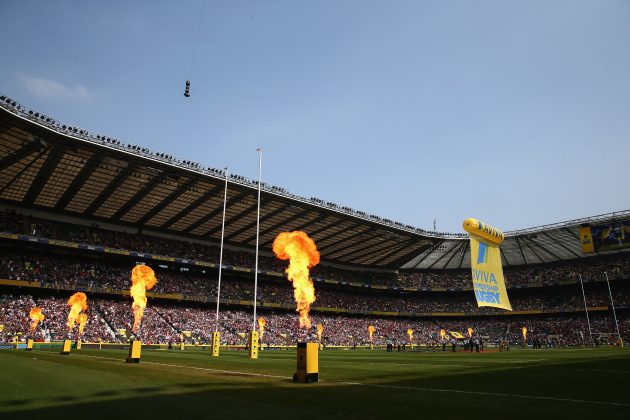The Aviva Premiership's salary cap has always caused debate, so one writer puts the case for scrapping it
Big-money signings by Aviva Premiership clubs have put the salary cap back on the agenda – but there is a way to stop the whispers.
When Wasps announced that South African full-back Willie le Roux would be arriving at the Ricoh Arena just after Christmas it raised the stakes for the forthcoming Premiership season and raised more than a few eyebrows around the country.
Le Roux is a fine player, and a welcome addition to the league, but it put the spending of clubs and the salary cap back on the agenda – not that it ever really went away. Wasps have signed amongst others Danny Cipriani, Kurtley Beale and Kyle Eastmond and they are not the only ones who have been getting the cheque book out.
JP Pietersen, Matt Toomua, Taulupe Faletau, Luke Charteris, Schalk Burger, Louis Picamoles, Mike Phillips and Soane Tonga’uiha will all be pitching up at a Premiership club near you and none of them are coming for nothing.

Star signing: Wales No 8 Taulupe Faletau has swapped the Dragons for Bath. Photo: Getty Images
And every time a club signs one of these established international stars to add to a squad that already has a few high-earning England players in it, the whispers start. How can they afford it? Are they really under the salary cap? Is that new fly-half’s wife also on the payroll?
There is no public evidence that anyone has flouted it, although the rumour mill was in full swing last autumn when Premiership Rugby investigated potential breaches and no one got fined. There were apparently some financial settlements made but the full extent of them was never revealed because of commercial confidentiality. So first some facts about the salary cap.
This season clubs can spend £6.5m on players, excluding two marquee players. The so-called regulations on marquee players, whose wages are paid outside of the cap, are pretty dry reading but one of them must not have played in the Premiership for 12 months and another can have been at the club for two seasons before the current campaign.
So, if you if look at the squad lists you would say big-name foreign newcomers are outside the cap and some heavyweight England players who have just signed new contracts might be as well.

French exchange: Louis Picamoles, the France No 8, has joined Northampton. Photo: Getty Images
With credits for producing home-grown players, an extra payment for providing England senior players and a pot to cover long-term injured players, it has been predicted that teams could be shelling out about £10m in wages. And this could increase for the 2017-18 season when the basic cap is raised to £7m. It is all a bit of a minefield if you haven’t got a qualification in number-crunching.
Clubs are getting more cash as a result of the new deal recently forged with the RFU but one chief executive has predicted that increased wages will see other areas neglected, such as development of stadia. Another club boss wants the salary cap frozen after next season. But if we want to get shot of all the innuendo and accusations of abusing the limits, why not get shot of the cap as well?
I couldn’t give a monkey’s how clubs run their business. If they can make a few quid by having Elton John or Bruce Springsteen playing at their grounds and want to spend it on players, then good to luck to them. Likewise if they can’t have super groups playing every now and again, then they might have to cut their cloth. It is called business and some clubs might need to get used to it.
If they sell more pints of beer on a match day and want to use it for players, then they should be allowed to, so it might be easier if we binned the salary cap altogether. It would stop all the gossip and people accusing certain teams of being tainted.

Fine line: Toulon have been fined for a Top 14 salary cap breach in 2014-15. Photo: Getty Images
It will now be said that more clubs would be in danger of going to the wall if the cap was abolished and a free-for-all was established where wealthy owners could just chuck money at signing every Dan Carter and Matt Giteau they can get their hands on.
No one wants to see what has happened in Premier League football, where clubs are used as vanity and money-making projects by overseas owners to the detriment of the national side, but a quick glance around the top tier of English rugby shows you that the men and women who run these clubs are no one’s ideas of mugs.
No cap would probably raise the spectre of English players struggling to come through whilst their position was filled by a southern hemisphere big cheese. But that could be overcome by forcing clubs to have a certain number of home-grown players in each match-day squad.
Rather than give them an allowance for having a certain percentage of English-qualified players in match-day squads, the powers-that-be could dock them points if they don’t. If England have a game that weekend and you have given Eddie Jones three or four of your top boys, it would be a different matter.
It would not be perfect, but a points deduction would hurt them properly and without the salary cap we wouldn’t have people whispering behind their hands about who is under and who is over.
For the latest Rugby World subscription offers, click here.





